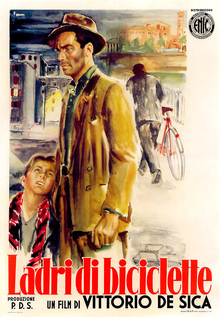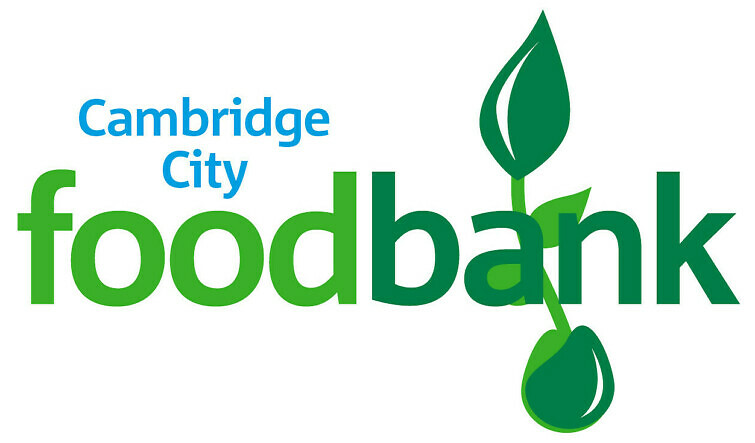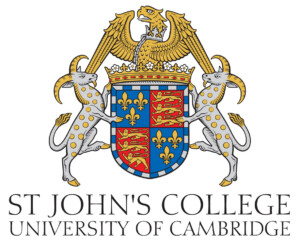| 22 Feb 2023 | 13:45 - 18:30 | Palmerston Room, St John's College, Cambridge CB2 1TP | |
- Description
- Programme
- Biographies
Description
This event falls on a University and College Union strike day and has been postponed to 9 March 2023.
Convenors
- Mike Kelly (Senior Visiting Fellow / Co-convenor St John’s Reading Group on Health Inequalities, Department of Public Health and Primary Care, University of Cambridge)
-
Ann Louise Kinmonth (Emeritus Professor of Medicine/ Convenor St John’s Reading Group on Health Inequalities, Department of Public Health and Primary Care)
-
Helen Watts (Academic co-ordinator, St John’s Reading Group on Health Inequalities)
- St Johns Picturehouse
Speakers
-
Robert Gordon (Centre for Film and Screen, Faculty of Modern and Mediaeval Languages and Linguistics, University of Cambridge)
-
Gordon Harold (Professor of the Psychology of Education and Mental Health, Faculty of Education)
- Ken Loach (Film Director)
Summary

Join us to view and discuss the acclaimed 2019 film Sorry We Missed You with the film’s Director Ken Loach. We are fortunate also to have secured Professor Robert Gordon (Centre for Film and Screen) and Gordon Harold (Professor of the Psychology of Education and Mental Health) both from the University of Cambridge. Robert will set the scene as a leading expert on the important early social-realist film Bicycle Thieves (1948, director Vittorio de Sica). Gordon will present current evidence on how household economic stress affects family dynamics and mental health and the implications for policy.
This rare afternoon will appeal to those interested in the development of the social realism film genre over the last century, in interdisciplinary studies of inequalities in health and a commitment to policy development and action.
The two films follow the lives of families contending with the everyday realities of economic stress and how these pressures impact on wellbeing at the individual, family and relationship levels Both are part of the ‘social-realism’ film movement that show and tell compelling stories set amongst poor and aspiring working-class families and filmed on location, often using non-professional actors.
The circumstances of the difficult economic and moral conditions of post-World War II Italy in “The Bicycle Thieves” stand interesting comparison with those of “Sorry We Missed You” and the present times; exploring our current zero-hours gig economy and its effect on families.
We invite attendance from all those interested including people with lived experience of these circumstances; academics from across the arts and science- including film makers and historians, sociologists, educationalists and psychologists and policy makers.
Together we will compare perspectives to better understand the scope of social reality films in reflecting and informing evidence and moving it forward into policy. In particular, we will think about how these films can help us to understand the social origins of mental health difficulties in families and policy to alleviate them.
We aim to develop creative relationships between people who may not often have the opportunity to discuss these topics together; they include those with experiences overlapping those portrayed in the films, those interested in the development of the social realism film genre over the last century and all those committed to studying and reducing inequalities in physical and mental health.
Please view the Bicycle Thieves in advance of coming to the event in readiness for Robert Gordon’s introduction.
This event is free of charge.
Donations will be collected at the event for two local Cambridge charities that work to support vulnerable people in need of a safety net:

Cambridge City Foodbank is a local charity that provides nutritionally balanced emergency food and support to local people who are referred to them in crisis. The food bank is part of a nationwide network, supported by The Trussell Trust, working to combat poverty and hunger across the UK.

Cambridge Aid is a point of last resort for those in desperate need within Cambridge and its surrounding villages. They provide short-term emergency financial relief for applicants referred from third-party agencies including Citizens Advice, Children and Family Centres, Social Services, and charities for the homeless or disadvantaged.
The conference is supported by:


If you have specific accessibility needs for this event please get in touch. We will do our best to accommodate any requests.
Programme
As this event falls on a planned UCU strike day, it has been postponed to 9 March 2023. |
|
All previously booked tickets are valid for the new event date. |
|
Pre-workshop Please view the Bicycle Thieves in advance of coming to the event in readiness for Robert Gordon’s introduction. |
|
| 13:15 - 13:40 | Registration |
Session 1 Chair: Minaam Abbas (Unversity of Cambridge) |
|
| 13:45 | Introduction, key questions and overview Ann Louise Kinmonth (University of Cambridge) |
| 13:55 | Key note 1 |
| 14:15 | Audience Q&A |
| 14:25 | Film showing ‘Sorry we missed you’ (100 min) |
| 16:05 | Tea and coffee break |
Session 2: Roundtable Facilitators: |
|
| 16:30 | Reflections and points of view: Voices of lived experiences |
Session 3 Chair: Jane Heal (University of Cambridge) |
|
| 17:30 | Key note 2 ‘How household economic stress affects family relationship dynamics and mental health: an overview of research evidence and policy potential’ |
| 17:50 | Audience Q&A |
| 18:15 | Commentary What have we learned? |
Biographies
Minaam Abbas
Minaam Abbas is a final year MB/PhD Candidate at St. John’s College. As a Gates scholar, his research explored the role of epigenetics in cancer and led to the development of a novel cancer drug. Minaam maintains a keen clinical and public health interest in infectious diseases in the developing world. He has written extensively on viral hepatitis and strategies for its elimination in resource-restricted settings.
Robert Gordon
Robert Gordon is Serena Professor of Italian at Cambridge and former chair of the Faculty of Modern and Medieval Languages and Linguistics. He works on the literature, cinema and cultural history of modern Italy and is the author of books on the intellectual and filmmaker Pier Paolo Pasolini, the Holocaust survivor and writer Primo Levi and the wider field of post-war responses to the Holocaust. He is also the author of the BFI Film Classics volume on Vittorio de Sica’s 1948 film Bicycle Thieves. He is a Fellow of the British Academy.
Gordon Harold
Gordon Harold is the inaugural Professor of the Psychology of Education and Mental Health at the University of Cambridge. His primary research interests focus on (1) examining the role of family relationship dynamics as a factor underlying differences in child and adolescent mental health outcomes and future life chances, (2) understanding the interplay between genetic factors and family relationship factors and young people’s mental health and development, and (3) promoting the implementation and evaluation of evidence-based practice and policy guidelines aimed at enhancing mental health outcomes for young people. Gordon is a member of UKRI-ESRC’s Data and Infrastructure, Skills and Methods Expert Advisory Group (EAG), a member of the Department for Work and Pensions (DWP) Methods Advisory Group (MAG) and a member of the Chairs of Scientific Advisory Councils Group in the UK, he is also an advisor to multiple other UK and international government departments and scientific committees.
Jane Heal
Jane Heal was an undergraduate and graduate student at Cambridge. She taught for ten years in the Philosophy Department at the University of Newcastle upon Tyne. In 1986 she returned to Cambridge where she is now an Emeritus Professor and Fellow of St John’s College. She works mainly in philosophy of mind and language, with a particular interest in the nature of co-operative thought and action. She was elected to the British Academy in 1997 and served as President of St John’s from 1999 – 2003.
Mike Kelly
Professor Mike Kelly was educated at the Universities of York, Leicester and Dundee. He is Senior Visiting Fellow in the Department of Public Health and Primary Care at the University of Cambridge. Between 2005 and 2014, when he retired from the NHS, he was the Director of the Centre for Public Health at the National Institute of Health and Care Excellence (NICE). There he led the teams producing public health guidelines. He has advised the House of Commons Health Select Committee and has been a witness before parliamentary committees in the Commons and the Lords. He has chaired committees for MRC, ESRC, the Foods Standards Agency, Public Health England and the Office for Health Improvement & Disparities. From 2005 to 2007 he directed the methodology work stream for the World Health Organisation’s (WHO) Commission on the Social Determinants of Health.
He is currently pursuing research about health inequalities, community health, the methods and philosophy of evidence based medicine, the relationship between evidence and policy, health related behaviour change, end of life care, dental public health, transport and health and chronic illness.
Ann Louise Kinmonth CBE
Ann Louise was Professor of General Practice in Southampton and Cambridge, and practiced at the Aldermoor Health Centre, Southampton and Newmarket Rd and York St, Cambridge. Elected Fellow of the Zoological Society of London, USA National Academy of Medicine (Foreign Associate), UK Academy of Medical Sciences and Royal Colleges of Physicians, Paediatrics and General Practice, her research has contributed evidence to national and international efforts to understand the place of behaviour change strategies to improve health and reduce health inequalities.
Ann Louise is Trustee of “Picturing Health”, making educational health films and of the Foundation for International Development of Family Medicine in Palestine.
As Fellow of St John’s College Cambridge, Ann Louise served as Director of Clinical Studies, Member of Council and Chair of Governors of St John’s College School. She co-founded St. John’s Reading Group on Health Inequalities in 2014.
Ken Loach
Ken Loach was born in 1936 in Nuneaton. He attended King Edward VI Grammar School and went on to study law at St. Peter’s Hall, Oxford. After a brief spell in the theatre, Loach was recruited by the BBC in 1963 as a television director. This launched a long career directing films for television and the cinema, from Cathy Come Home and Kes in the sixties to Land And Freedom, Sweet Sixteen, The Wind That Shakes The Barley (Palme d’Or, Cannes Film Festival 2006), Looking for Eric, The Angels’ Share and I, Daniel Blake (Palme d’Or, Cannes Film Festival 2016).



